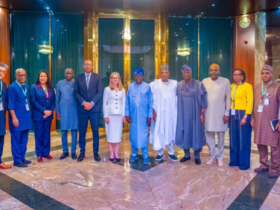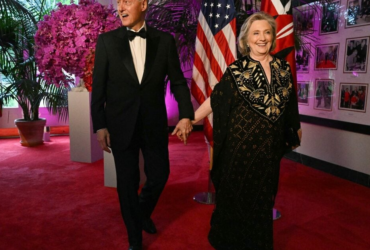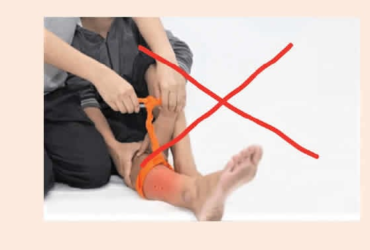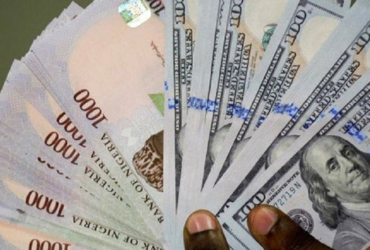International trade is advantageous for many socio-economic and political reasons, including revenue generation and friendliness. The more emphasis a country places on income generation, the less attachment it has to friendliness. Free trade, for example, should promote political and economic friendship between and among nations, and it does. That is what capitalism promotes, and that is what present capitalist America under Trump detests.
Generally, international trade leads to optimal resource allocation as proposed in the theories of comparative advantage and makes a variety of commodities available for consumers. It enhances growth in output from sectors with tradeable goods and promotes competition in production and the exchange of goods and services locally and internationally. Innovation and technological advancement among countries occur, just as competitive pricing and stabilisation of global prices are achieved. Free trade, in particular, achieves these advantages, which are actionable and possible.
Of course, as we talk about these handsome benefits of international trade, we cannot ignore some of the disadvantages. It can affect domestic production because of the importation of cheaper foreign goods and thus leads to dependence on foreign goods and services, which depletes foreign reserves. It has led to economic dependency, particularly between developing countries, which sell primary products, and developed economies that sell manufactured goods. This invariably causes widening trade gaps and overutilisation of natural resources. An exporting country can exploit an importing country because a monopoly situation or artificial scarcity can be created.
Over the centuries, America has championed international trade, particularly free trade. She has benefited greatly from it when other countries were struggling to catch up in economic growth and development. When competition in global trade was more in its favour. Today, there is fierce competition with other economically advanced economies, including Japan, China, Germany, Russia, France, et cetera. America, like other countries, imports and exports raw materials and finished goods. No country can produce or meet all its people’s needs. President Trump now finds that the competition, arising largely from rapid technological advancement, has made a nonsense of free trade in terms of loss of revenue to his country when looking at terms of trade or, more appropriately, the balance of trade. Americans seem to be buying more from the rest of the world, with implications of paying more for forex, affecting their reserves and the value of the dollar in the international market.
As far as Trump is concerned, America must lead in every aspect of life, and it can impose itself on the rest of the world. It can bully the world as a unit or in its fractional entities. This is an illusion. America cannot do things alone anymore but with its allies. Truly, the American economy still provides significant leadership in global economic and political affairs. As Trump reeled out his tariff schedule, various economic figures (forex and share prices) started changing globally, largely in a negative direction. But, unlike in the past, stability of economic instability is being achieved even in the short run. The delay is because of the marked reactions from equally economically strong countries.
Europe is already a single market trading largely within itself. Based on 2023 figures, the share of intra-trade in the European Union ranged between 50 per cent and 75 per cent. Actually, the share of the EU imports for goods and services in the world was down from 17.4 per cent in 2021 to 16.6 per cent in 2022. This implies that member countries within the Union trade more among themselves or are less dependent on the other countries in the world. If we break down the trade, we will not be surprised that their trade with the rest of the world is largely for raw materials. For the Union, Trump’s tariffs would not have serious effects, even on individual member countries. It will also strengthen the relationship in the Union. Presently, Germany is the main leader in the group as it has the highest share of extra-EU trade of 27.4 per cent of the EU exports of goods to non-EU members in 2024. And France and Italy are not doing badly.
Both the United States and China are the main trading partners of the EU outside the Union for imports and exports, but the United Kingdom, the Russian Federation and Switzerland are also involved. The imposition of tariffs by the United States may not have much effect on European countries as they may move closer among themselves and with China, which has pushed the US to second place in trade since 2022. The first level of reactions from nations around the world is being settled, though the injuries are not as deep as Trump envisaged. President Trump will soon realise that no country will suffer more than America in this case! The friendship promoted by free trade is gone, and it is like America is fighting itself, its ideological values, and the world!
Africa could be affected by the tariff, but that should not last long and be deeply injurious. According to a World Bank report, the major trading partners with Africa for exports are China, India, the US, the Netherlands and Switzerland, while for imports are China, India, the United Arab Emirates, and the United States. Importantly, reports show that China has been Africa’s biggest trading partner for the past 15 consecutive years. The trade volume between China and Africa is recorded to surpass $300bn annually, and it involves infrastructural development like roads, railways and energy projects besides consumer goods like electronics, clothing and machinery.
South Africa is the largest trading partner of China in Sub-Saharan Africa. Trade volume worth $52.4bn took place between South Africa and China in 2024, followed by Nigeria ($21bn) and Egypt ($17.3bn). South Africa is the most industrialised and diversified economy in Africa and the only member of the G20. Of course, it is also the most hit in Africa by the Trump tariff, and it is equally responding in retaliation to the act. The major trading partners with Nigeria as of 2024 figures are China, India and Belgium. However, we have our share of trade barriers, but we will feel fine, sooner than expected, like the rest of the world.
The Trump tariff may result in a shrinking of world trade in the short term, but there will be alignment and realignment, including the consolidation of economic unions, that may turn the tables against Trump’s expectations. Africa must take advantage of the immediate and emerging trading alignment as it evolves. The United Nations Economic Commission for Africa, the African Export-Import Bank and the African Development Bank should assist, possibly under the aegis of the African Union, to chart a new, beneficial and enduring course of action for African regional communities whose primary aim focuses on trade. The contagious effect of the Trump tariff may be slow in coming fully to the continent, but Africa cannot afford to be slow in taking preemptive actions that will lessen the burden of the tariff whenever it surfaces.
The intra-African trade is very low despite the various regional economic communities and even the AU. Most African countries have not divorced themselves from the colonial era and colonial mentality. The governments even collaborate with outsiders to exploit other African brothers, as it emerged in the case of Rwanda and the Democratic Republic of Congo. The actions that made the slave trade flourish most among the continents in the world while it lasted have not left us, even in the 21st century.
The fact that African leaders are corrupt and hide their looting in America and Europe makes them most subservient to the leadership of those countries at the expense of Africa. They can trade with countries on other continents, but the legal and illegal gains go to the financial institutions between the United States and Europe. The financial flows become an investment and growth instrument for those countries at the expense of Africa.
It looks clear that free trade is no longer free, so long as its disadvantages start getting the better of its advantages. Very long ago, academics in Africa and around the world espoused the unequal trade outcomes that would arise between developed and developing countries when the idea of free trade, or trade without barriers was vigorously championed by the United States in the late 1980s and thereafter. It is time for African leaders to believe in Africa’s intellectuals and foreign experts who have sympathy for the continent.














Leave a Reply